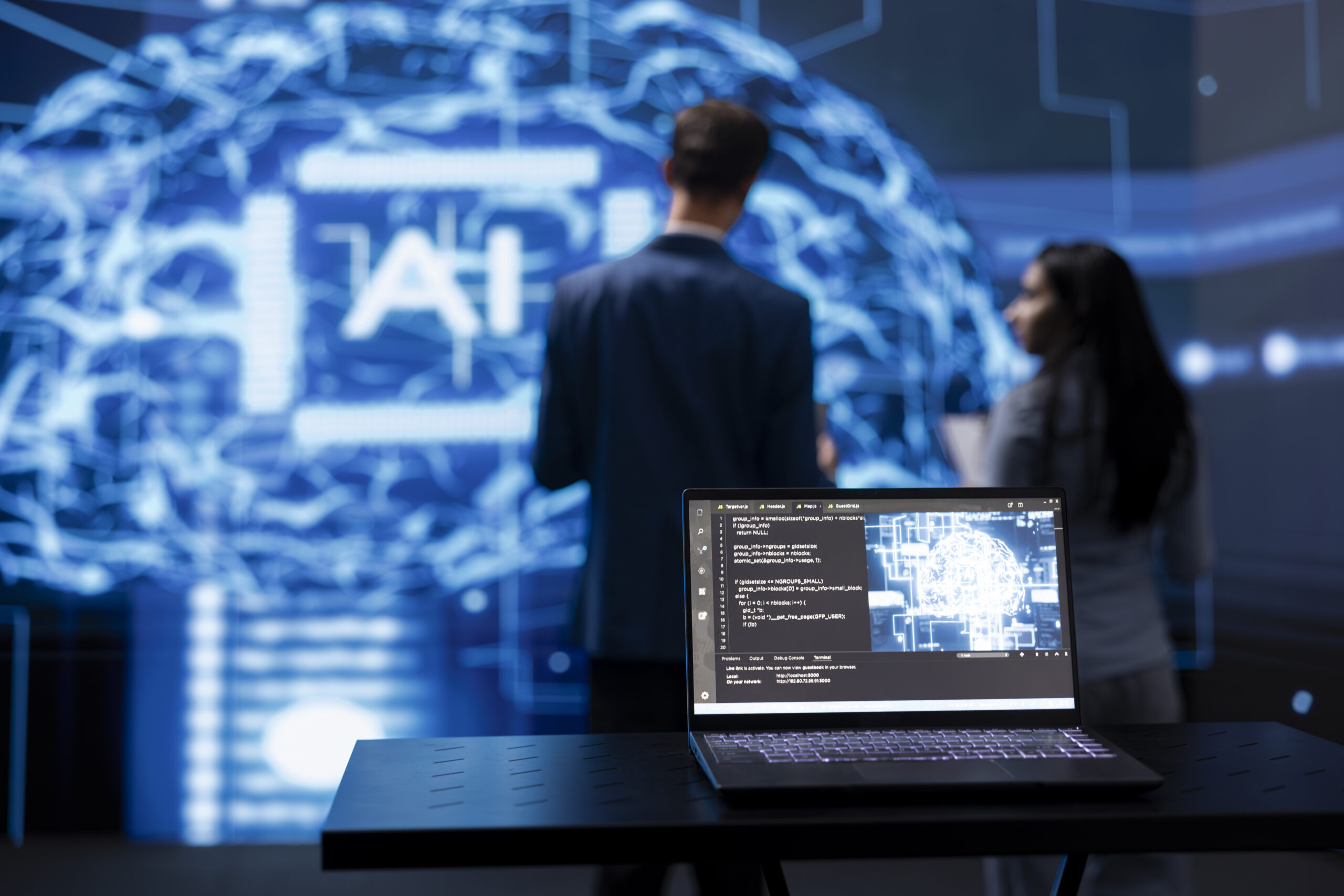In recent years, Artificial Intelligence (AI) has transitioned from a futuristic concept to an integral part of our daily lives. From voice assistants on our smartphones to AI-driven recommendations on streaming platforms, the impact of AI is increasingly noticeable. But what exactly is AI, and how is it becoming a part of our everyday routines?
In this blog, we’ll explore what AI is, its role in modern life, and how it’s shaping the future by making our lives easier, more efficient, and personalized.
What is AI?
Artificial Intelligence (AI) refers to the simulation of human intelligence in machines that are programmed to think, learn, and problem-solve like humans. The goal of AI is to create systems that can perform tasks that typically require human intelligence, such as understanding language, recognizing images, making decisions, and improving over time based on experience.
There are two primary types of AI:
- Narrow AI (Weak AI): This is the most common form of AI we encounter in our daily lives. Narrow AI is designed to perform a specific task, such as facial recognition, playing chess, or recommending products on an e-commerce site.
- General AI (Strong AI): A more advanced, theoretical form of AI, which would have the ability to perform any intellectual task that a human can do. While this remains a concept for the future, researchers continue to work toward developing more advanced AI.
In the last decade, we’ve seen significant advancements in AI, and today, it’s already woven into the fabric of many industries and services.
How AI is Becoming Part of Our Everyday Lives
AI is no longer a distant concept; it’s part of our daily routines in more ways than we realize. Below are some of the most common areas where AI is making a difference:
1. Voice Assistants
Voice-controlled AI assistants, such as Amazon’s Alexa, Apple’s Siri, and Google Assistant, have become household staples. These assistants can perform a range of tasks, such as setting reminders, playing music, providing weather updates, and even controlling smart home devices—all via simple voice commands.
What makes these assistants even smarter is their ability to learn from user interactions. As you use them more, they get better at understanding your preferences, routines, and needs, providing a more personalized experience over time.
2. Personalized Recommendations
When you scroll through Netflix, YouTube, or Amazon, the AI behind these platforms is constantly analyzing your behavior, preferences, and past choices to recommend shows, videos, or products that are tailored to you. This personalized experience saves time and helps you discover new content that aligns with your interests.
For example, Netflix’s recommendation engine uses algorithms to suggest movies or TV shows based on what you’ve watched in the past, your viewing habits, and the preferences of similar users.
3. Smart Homes
AI has transformed our homes into smarter, more efficient spaces. Devices such as smart thermostats (e.g., Nest), security cameras, lighting systems, and even kitchen appliances are using AI to automate tasks and make life more convenient.
For instance, smart thermostats learn your schedule and preferences, adjusting the temperature in your home to suit your comfort while optimizing energy usage. AI-powered security cameras can distinguish between a person and a pet, alerting homeowners only when necessary, reducing unnecessary notifications.
4. Healthcare
AI is revolutionizing the healthcare industry by improving diagnostics, personalizing treatment plans, and even assisting in surgery. AI-driven applications like IBM Watson have shown how AI can analyze vast amounts of medical data, such as patient records and clinical trials, to help doctors make more informed decisions.
Additionally, AI-powered apps can monitor our health through wearable devices. For instance, fitness trackers like Fitbit and Apple Watch use AI to track and analyze physical activity, heart rate, sleep patterns, and more, giving users real-time feedback and insights on their health.
5. Autonomous Vehicles
Self-driving cars are one of the most talked-about uses of AI. Companies like Tesla, Waymo, and Uber are actively working to develop vehicles that can navigate, detect obstacles, and make decisions without human intervention.
AI in autonomous vehicles uses a combination of sensors, machine learning, and computer vision to analyze the surrounding environment, predict potential hazards, and ensure the car operates safely. While fully autonomous vehicles are not yet widespread, AI is already playing a key role in driver assistance technologies, such as lane-keeping, adaptive cruise control, and emergency braking.
6. Customer Service Chatbots
AI-powered chatbots are becoming a staple in customer service across various industries. These chatbots can answer common questions, guide customers through troubleshooting, or help with account management. Many businesses now use chatbots on websites or within mobile apps to provide 24/7 support.
AI chatbots are also becoming more sophisticated, learning from previous conversations to improve their responses and provide more accurate, context-driven assistance. These bots save time for both customers and businesses by handling simple tasks, allowing human agents to focus on more complex issues.
7. AI in Social Media
Social media platforms use AI to personalize your feed, recognize faces in photos, and even detect inappropriate content. Facebook, Instagram, Twitter, and other platforms leverage AI algorithms to recommend friends, pages, or groups based on your interests and interactions.
Additionally, AI is helping brands optimize their social media strategies by analyzing user behavior, engagement, and content performance. This allows businesses to tailor their ads and posts to specific audiences, improving engagement and customer satisfaction.
8. Financial Services and Fraud Detection
In the world of finance, AI is playing an important role in detecting fraudulent activities and making financial decisions. AI algorithms can analyze large volumes of transactions in real time, identifying suspicious behavior or anomalies that could indicate fraud.
Banks and financial institutions also use AI to help customers with budgeting, investing, and managing their finances. AI-powered tools can track spending, provide personalized saving advice, and even assist in choosing investment portfolios based on risk preferences.
9. AI in Entertainment and Gaming
AI is transforming the entertainment industry, particularly in video games. AI-powered characters and non-playable characters (NPCs) in games can adapt to a player’s behavior, providing a more dynamic and challenging experience. Video games are becoming more immersive and responsive thanks to AI’s ability to learn and adapt to players’ actions.
In music and film, AI is also being used to create new content. For instance, AI algorithms can analyze music trends to generate new compositions or help filmmakers with video editing by identifying patterns and suggesting edits.
10. AI in Retail and Shopping
AI is revolutionizing the way we shop, both online and in stores. From personalized shopping experiences to inventory management, AI is helping retailers enhance customer experiences and streamline operations.
AI-powered recommendation engines in online stores suggest products based on past purchases, browsing behavior, and preferences. Additionally, AI is used in retail analytics to predict consumer trends and optimize inventory.
Conclusion
AI is no longer a futuristic technology—it’s already deeply integrated into our daily lives, making tasks easier, more efficient, and more personalized. From voice assistants and personalized recommendations to smarter homes and self-driving cars, AI is helping to shape the way we live and work.
As AI continues to evolve, we can expect even more innovative solutions that further enhance convenience, improve decision-making, and provide more personalized experiences. Embracing AI isn’t just about keeping up with technology; it’s about taking advantage of the countless opportunities that AI offers to make our lives better and more efficient.
So, whether you realize it or not, AI is already here—and it’s making a positive impact on your everyday life!

